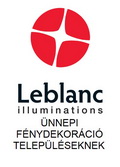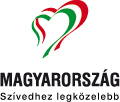Committee of the Regions
The Committee of the Regions (CoR) and the Hungarian delegation
The Hungarian Delegation of the CoR works as full membership in the Committee of the Regions since 1 May 2004.
How does the Committee of the Regions work?
The Committee of the Regions is made up of 353 members and the same number of alternates from 28 EU countries. These members are appointed by the Member States for a five year term, which may be renewed. (Current term is till February 2015). They must hold elected office or be politically accountable to an elected assembly. For this reason, members who cease to hold such office automatically lose their seat on the Committee of the Regions. Each country chooses its members in its own way, with the proviso that members must reflect a political and geographical balance and be taken from both the regional and local level. The CoR mandates are valid, when they have been published at the Official Journal. Hungary has 12 Hungarian full CoR members and 12 alternate members based on the CoR rules and the Lisbon Treaty. The Hungarian MÖSZ’ president, Mr. György Gémesi (mayor of Gödöllő) and some other MÖSZ’ members are members of the CoR; attend CoR meetings and enforce the local and regional interests.
The CoR members elect their own President – currently Mr. Michel Lebrun (EPP) from Belgium till February 2015. The new Secretary-General is Mr. Jiří Buriánek (CZ/DE), who takes his office since 1 September 2014 with five-year mandate.
The CoR’s work is split between six specialised commissions
- Territorial Cohesion policy (COTER)
- Economic and Social policy (ECOS)
- Environment, Climate change and Energy (ENVE)
- Education, Youth, Culture and Research (EDUC)
- Citizenship, Governance, Institutional and External Affairs (CIVEX)
- Natural Resources (NAT)
The commissions, which are made up of CoR members, draw up draft opinions on legislative proposals submitted by the European Commission, the Council or the European Parliament. There are 4 Hungarian members in each commission. The draft is then voted on during one of the four or five plenary sessions that take place each year in Brussels. It is only adopted if it receives a majority of votes cast. Five political groups are represented at the Committee of the Regions: the European People’s Party (EPP), the Party of European Socialists (PES), the Alliance of Liberals and Democrats for Europe (ALDE), the European Alliance (EA) and the European Conservatives and Reformists (ECR).
Bringing the European Union closer to its citizens
While much of the CoR’s work lies in its involvement in the legislative process, its role does not stop there. The CoR members live and work on a day-to-day basis in their regions; cities and villages as regional presidents, mayors or local councillors. This enables them to stay in touch with the concerns of the people they represent, which put them in a position to bring these views to the heart of the European system when they come to Brussels for CoR meetings. In addition, the CoR regularly raises the profile of local and regional authorities on the European stage by organising conferences, seminars and exhibitions all year round in cooperation with its regional and local partners, including the "OPEN DAYS - European Week of Regions and Cities", which brings together more than 7000 stakeholders each October.
The work of the Committee of the Regions is based on three fundamental principles:
The subsidiarity principle: this principle requires that decisions be taken at the level of government that best serves the public interest. The European Union must not pursue initiatives that would be better carried out by national, regional or local governments.
The proximity principle: all levels of government must work as transparently as possible and as close as possible to the public so that citizens know who is responsible for what and how they can make their views known.
The partnership principle: European, national, regional and local governments must work together throughout the decision-making process.
The Committee of the Regions (CoR) was set up in 1994, to give local and regional governments the opportunity to express a view on the substance of EU legislative proposals at the drafting stage in order to make them better adapted to the needs of citizens. The European treaties stipulate that the Committee of the Regions must be consulted whenever proposals are made in areas likely to have repercussions at local or regional level. In practice, this means that the Committee of the Regions is consulted as of right on most European legislation. The CoR now has a greater consultative role to play, and also new leverage for implementing multilevel governance. The Committee of the Regions can also put its priorities onto the European Union’s agenda by issuing own-initiative opinions and drafting reports on subjects of interest to it. For instance, Mr. György Gémesi, president of the MÖSZ, as CoR member (EPP/HU) has worked out an own-initiative opinion on strengthening EU Citizenship: Promotion of EU Citizens Electoral Rights, which was accepted at the plenary in February 2013.
Downloads:
- CoR Rules of Procedure
- Charter for Multilevel Governance in Europe
- CoR Opinion on Strengthening EU Citizenship





























